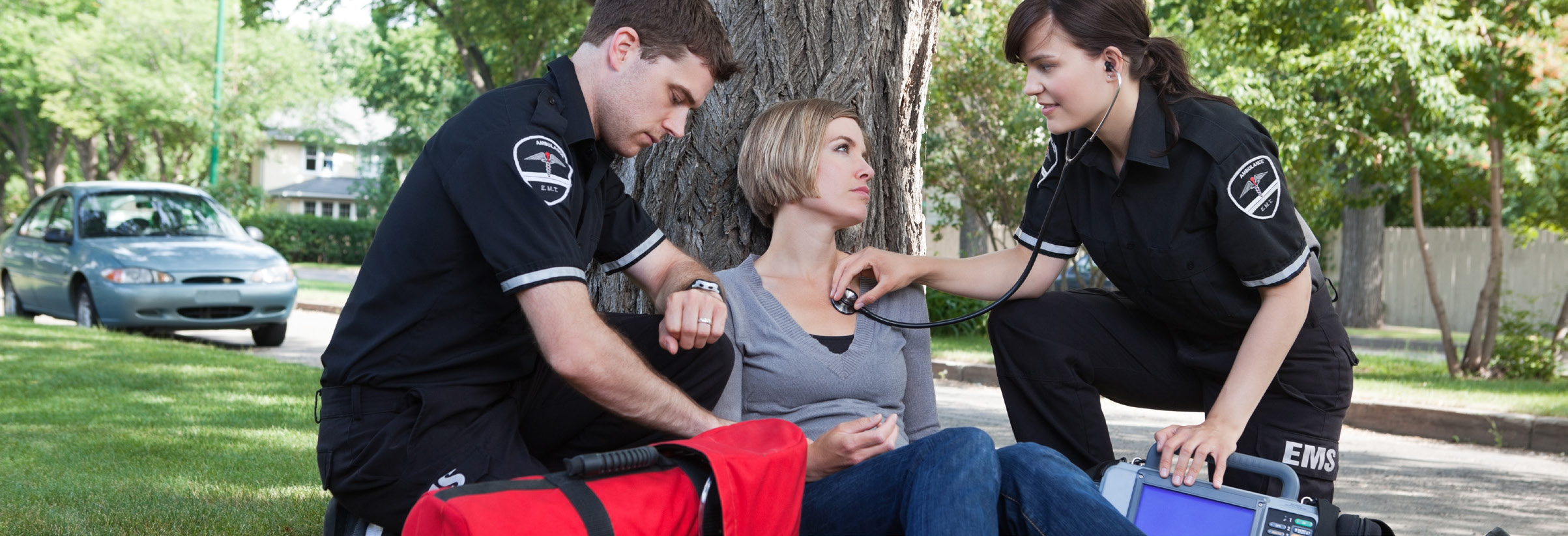

Health/ Emergency Medical Services
Emergency Medical Responder CHEM-3000
This program is ideal for students who wish to learn the skills and be certified at the level of Emergency Medical Responder (EMR). Learn basic emergency stabilization skills for the sick and injured prior to the arrival of an ambulance or rescue squad. At the end of the program, the student will perform practical testing and take the National Registry of EMT (NREMT) Cognitive Exam in order to become certified as a National and State Certified EMR.
Ready to learn more? Complete our online form or contact us at 319-398-1022.
Upcoming Offerings:
No upcoming dates at this time.
Tuition Assistance:
No.
Industry Credentials Earned:
This course, after successful completion of the NREMT Psychomotor and Cognitive Exam, will certify the student as a National Registered EMR and a State Certified EMR.
Careers:
Source: Career Coach 2018, Kirkwood Community College region.
Emergency Medical Technicians and Paramedics
Average hourly earnings: $16.94
Starting hourly earnings: $9.85
Projected job openings (2018 – 2023): 174
Entrance Requirements/Prerequisites:
Students must be at least 17 years of age at the time of enrollment and provide documentation of current certification in American Heart Association BLS Provider prior to the course. Students must also have proficient skills in reading and writing English and be able to physically perform the duties of a First Responder.
Delivery Method:
Hybrid
Length of Program and CEU Credits:
64 hours, 7.68 CEUs
Program Completion Requirements:
Successful completion of this course requires adherence to class policies, maintaining a course average of 70 percent, a minimum score of 70 percent on the course final examination, and successfully demonstrating all required practical skills. In order to be eligible to take the course final exam, all course requirements must be completed and tuition must be paid in full.
Course Objectives:
• Understand the roles of EMS in the healthcare system.
• Demonstrate the professional attributes expected of EMRs, including following legal and ethical guidelines.
• Perform the roles and responsibilities of an EMR with regard to personal safety and wellness, as well as the safety of others.
• Perform the duties of an EMR with regard for medical, legal, and ethical issues, including functioning under medical direction and within the scope of practice.
• Apply principles of anatomy, physiology, pathophysiology, life-span development, and therapeutic communications to the assessment and management of patients.
• Perform initial assessments and physical examinations.
• Identify ways in which diseases are transmitted and describe the universal safety precautions to prevent transmission.
• Recognize life-threatening bleeding.
• Identify the need for and immediately perform life-saving interventions to manage a patient’s airway, breathing, and circulation.
• Identify the major risk factors for cardiovascular disease and injury and describe how to reduce them.
• Recall the signs, symptoms, and treatments for a heart attack.
• Demonstrate how to provide cardiopulmonary resuscitation (CPR).
• Identify breathing devices and demonstrate how to use them.
• Recognize the signs and symptoms of shock, and various soft tissue and musculoskeletal injuries.
• Administer care for medical emergencies, including poisoning, heat and cold emergencies, stroke, emergency childbirth, triage, and be able to describe both general and specific care for medical emergencies.
• Apply principles of emergency medical services operations, considerations, multiple-casualty incidents, gaining access to and extricating patients, hazardous materials incidents, and responding to situations involving weapons of mass destruction.
Learning Outcomes:
Upon completion of this program, students should be able to understand the roles of an EMR and to recognize and provide safe, ethical, and professional care to patients in a variety of emergency medical situations. In addition, successful completion of the required exams will certify the student as a National Registered EMR and a State Certified EMR
Other Items to Know About this Course:
Tuition does not cover the practical testing or the NREMT written exam. Tuition does cover textbook and they will be mailed to the student from the publisher.
Pathway to Credit Program:
None.
Related Information:
www.nremt.org
www.idph.iowa.gov/BETS/EMS
www.nhtsa.gov/
